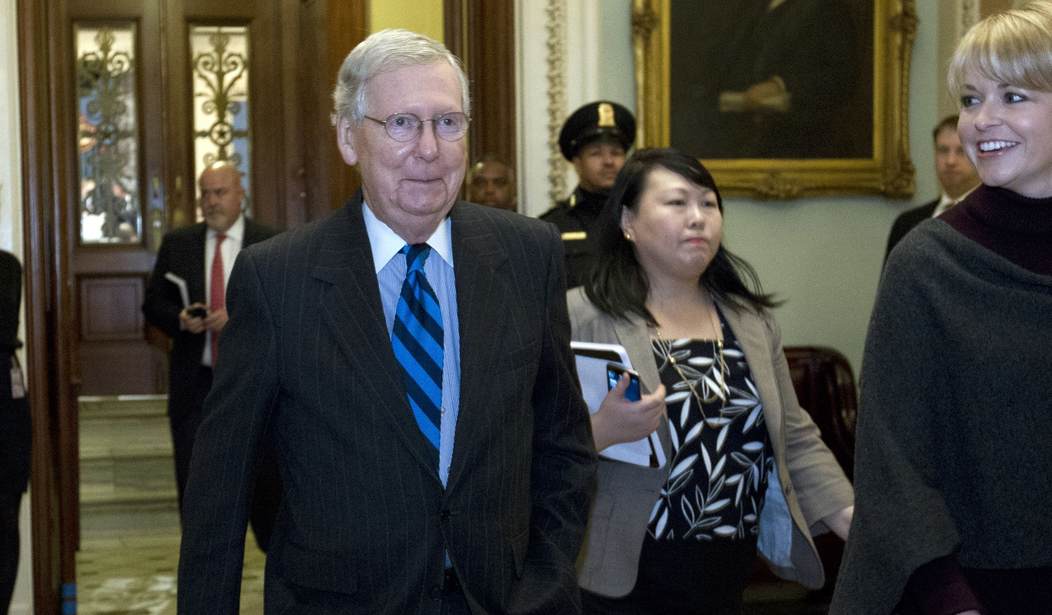Republicans in the Senate don’t have much chance to derail Joe Biden’s $1.9 trillion pandemic relief bill now that Democrats have begun the budget reconciliation process. But that doesn’t mean that the GOP is going to make it easy for the opposition.
The start of reconciliation signals the beginning of a “vote-a-rama,” where the minority party readies a blizzard of amendments on controversial issues hoping to embarrass the majority by forcing them to vote against popular ideas on the record. It rarely works and it’s extraordinarily time-consuming. This process has never stopped a bill from being passed, butt if one of the GOP’s goals is to annoy Senate Democrats, they’ve already succeeded.
“We need to remember what this is all about. This is not about a goofy 10-hour or 12-hour or 15-hour process where we stack amendments and try to set each other up, that we’ll somehow trick someone into taking a bad position that can be turned into a campaign advertisement,” [Sen. Brian] Schatz said on the Senate floor. “It is nonsense, and everybody should ignore it if they can. Do anything to not watch vote-a-rama.”
Republicans have teed up hundreds of amendments, including to preserve former President Donald Trump’s border wall, reverse Biden’s action to nix the Keystone XL pipeline and create “deficit-neutral reserve funds” on everything from supporting resources for police to prohibiting “sex-selective abortion.”
It could prove to be very interesting with the Senate split 50-50. Every single Democrat will have to be present for every single roll-call vote. And Vice President Harris will have to lurk outside the chambers all night.
But the battle will have only begun and Biden has zero margin for error going forward.
If Democrats do decide to use reconciliation, they will have to carefully craft their bill to ensure the Senate parliamentarian agrees the policies qualify under the special budget rules and will likely have to ditch some provisions to make it work. Then comes the task of getting all Senate Democrats to vote for final passage, as well as more than 200 lawmakers in the House, where Democrats hold only a 10-vote majority over the GOP.
“The biggest challenge that the Democrats have is staying united. They can’t help themselves,” Rep. Jason Smith (R-Mo.), ranking Republican on the House Budget Committee, said in an interview.
Will including a $15 an hour federal minimum wage in a pandemic relief bill pass muster with the parliamentarian? Democrats will claim that all these extraneous proposals unrelated to pandemic relief will help the economy recover — an arguable assertion that Republicans will seek to challenge.
But the radicals in the Senate may try to load up reconciliation with all sorts of things that more moderate Senators would reject. Majority Leader Chuck Schumer risks losing a few of their votes if he allows the radicals too much leeway.
And since the reconciliation process demands cuts to the budget for every dollar added to the deficit, reductions in Medicare are a real possibility.
Even if the aid package clears Congress through reconciliation, the headache of using the budget tool continues. As Republicans most recently experienced after the 2017 tax overhaul, the maneuver triggers automatic cuts to Medicare and other safety net programs. While Congress has continually voted later to avoid those reductions, Democrats will need Republican votes in the Senate to avert such a cliff.
The extensive trouble the GOP can make for Democrats as they invoke reconciliation is only just beginning. The fallout from the pandemic relief bill may last into the 2022 election, complicating Democrats’ lives even further.
Senator Schatz is wrong. Watching “vote-a-rama” is going to be fun if you like seeing Democrats discomfited.










Join the conversation as a VIP Member